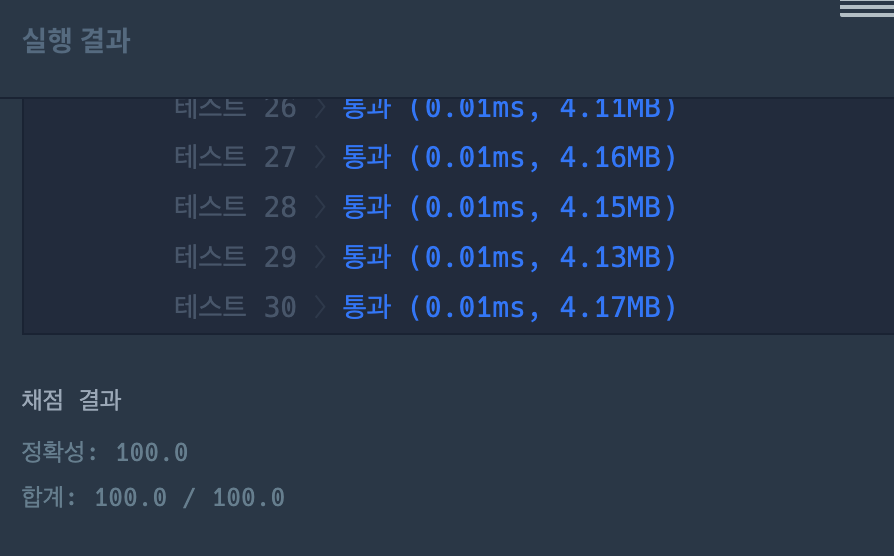Programmers 92345
사라지는 발판
CODE ⌨️
#include <vector>
#include <algorithm>
#include <limits.h>
using namespace std;
int N, M;
int dx[] = { -1, 1, 0, 0 };
int dy[] = { 0, 0, -1, 1 };
bool isFinished(vector<vector<int>> &board, int x, int y)
{
for (int i = 0; i < 4; i++)
{
int nx = x + dx[i];
int ny = y + dy[i];
if (nx < 0 || ny < 0 || nx >= N || ny >= M) continue;
if (board[nx][ny] == 0) continue;
return false;
}
return true;
}
pair<bool, int> solve(vector<vector<int>> &board, int x1, int y1, int x2, int y2)
{
if (isFinished(board, x1, y1)) return { false, 0 };
if (x1 == x2 && y1 == y2) return { true, 1 };
bool state = false;
int minCost = INT_MAX;
int maxCost = 0;
for (int i = 0; i < 4; i++)
{
int nx = x1 + dx[i];
int ny = y1 + dy[i];
if (nx < 0 || ny < 0 || nx >= N || ny >= M) continue;
if (board[nx][ny] == 0) continue;
board[x1][y1] = 0;
pair<bool, int> res = solve(board, x2, y2, nx, ny);
board[x1][y1] = 1;
if (!res.first) // 상대방이 졌다면
{
state = true; // 내가 무조건 이겼다고 표시
minCost = min(minCost, res.second);
}
else if (!state) // 내가 아직 이겼는지 모르는 상태라면
{
maxCost = max(maxCost, res.second);
}
}
if (state) return { state, minCost + 1 }; // 내가 이겼다면
else return { state, maxCost + 1 }; // 내가 이기지 못했다면
}
int solution(vector<vector<int>> board, vector<int> aloc, vector<int> bloc)
{
int answer = 0;
N = board.size();
M = board[0].size();
answer = solve(board, aloc[0], aloc[1], bloc[0], bloc[1]).second;
return answer;
}
RESULT 💛

SIMPLE DISCUSSION ✏️
게임 이론 문제였다. 그리디와 유사하다고 느낀 문제였다.
SOURCE 💎
Programmers_Link 👈 Click here
*****
NOT A TALENT ❎ NOT GIVING UP ✅
CopyRight ⓒ 2022 DCherish All Rights Reserved.
CopyRight ⓒ 2022 DCherish All Rights Reserved.